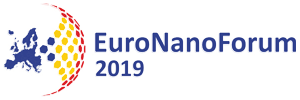Daniele PULLINI

Daniele PULLINI
Daniele Pullini, Research Manager of Global Materials Laboratories, FCA EMEA
Physicist, PhD – senior researcher in academic and industrial contexts. Today, Daniele manages the Research of GML, the Global Materials Laboratories of FCA-EMEA. Daniele is an active member of the KIC-raw materials and, in this frame, he is involved in the creation and the implementation of the Future Mobility Lighthouse program also in connection with EBA, the European Battery Alliance. Daniele has a long-lived experience in collaborative research, having promoted thematic programs within EUCAR and ETP (EuMat and Nanofutures), and worked in a significant number of European and national research projects on: fundamental and applied science & technology, nanotechnologies, advance materials & processing, Marie Curie training networks, and RFCS projects of different scope and partnership size. Records: +70 peer reviewed publications on advanced material S&T and nanotechnology international journals, +40 conference papers, and +40 patents valid in Europe, USA, Russia, China and Japan. Teaching experience: research and innovation transfer at Politecnico di Torino, Universitat Politecnica de Valencia, and City University of Hong Kong.
Abstract
The automotive sector alone provides 12 million jobs and accounts for 4 % of the EU GDP. 2.5 million People are currently involved in the manufacturing of motor vehicles, which is equivalent to 8.2 % of the EU employment in manufacturing. Finding new forms of sustainable mobility is fundamental in the transition towards a Green Economy. Whilst the overall greenhouse gas emission decreased in Europe over the last 25 years, those related to transportation has increased over the same period: today, it accounts for almost a quarter of the greenhouse gas emissions in Europe. Thus, the search for novel, environmentally sustainable forms of mobility that are economically feasible has become a key theme in society as well as in academic and industrial research. Apart from reducing pollution emission, key areas that currently experience innovation in the automotive sector include enhanced connectivity, autonomous driving, and safety (i.e., enhanced performance, reliability, predictive modelling and monitoring of material failure). Nevertheless, there are several innovation trends and challenges common to all of them, particularly in the development towards the use of novel lightweight materials, electrification, cost reduction, and the extended use of electronics to enhance connectivity and communication. The use of advanced materials and the development of new structural and/or functional materials are at the very heart in each of these innovation fields.
